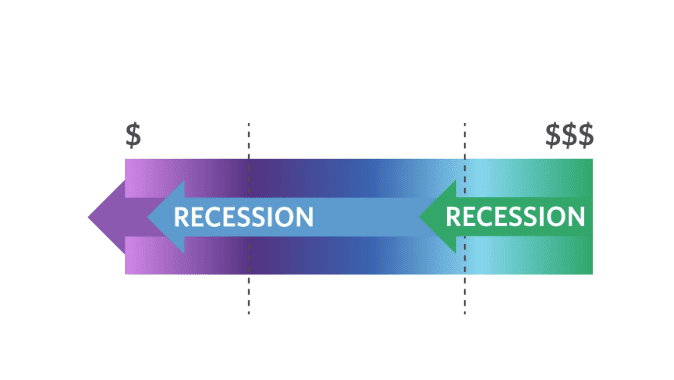 By Sarah Neeley, Blip Billboards
By Sarah Neeley, Blip Billboards
Talk of an upcoming recession has caused many to seek out warning signs and to take some financial precautions. In fact, The Economist magazine reports that Google has “registered an alarming rise in searches related to ‘recession.’” But regardless of when, if, or why a recession hits, understanding how a recession could potentially impact media buying can help sign operators prepare for a future economic downturn.
- Big spenders: Companies such as Coca-Cola and Nike will continue to invest in marketing during financial downturns. In fact, recessions can actually be a massive opportunity for companies with comfortable cash positions. The same is true for recession-resilient companies such as discount retailers, vices, healthcare, and tax services. During a recession, large companies with a strong capital position can capture market share from weaker competitors by continuing to invest in OOH and other media.
- Middle of the pack: While there may still be significant money to allocate to billboard advertising, medium-sized businesses will want more flexibility to determine how long, where, and what their advertising looks like. Decreased consumer spending will result in increased competitive pressures for this vulnerable business segment. The worst thing the OOH industry can do to the medium-sized spenders in a recession is refuse to offer flexibility and smaller units of purchase. Without right-sized packages and more granular offerings, many of the advertisers from this category will abandon OOH, rather than merely scaling back.
- Small businesses: Some small businesses will not be able to maintain their OOH spending during a recession. Similar to larger organizations, these businesses will experience revenue declines but—in contrast to the larger organizations—will decrease their marketing budgets in response. Small businesses will likely fail at higher rates than their larger counterparts during a recession. However, the smaller companies already tend to prefer flexible advertising products, and these products are more likely to natively support the required flexibility during an economic downturn, potentially resulting in lower rates of abandonment.
So, how do media owners prepare for a recession?
Flexibility is key. Although the largest advertisers aren’t likely to change their spending patterns dramatically, media owners will need to adapt some of their practices to preserve as much of the small and medium business revenue as possible, while still maintaining rate integrity. Sales staff will need to provide smaller packages, flexible payment terms, and higher value-add to retain advertising customers. Additionally, media owners should be prepared to preserve revenue by shifting tenuous advertisers from traditional contracts to more flexible, smaller-scale products, rather than losing those customers to another medium that offers such benefits (like online advertising).
[wpforms id=”9787″]
Paid Advertisement

















